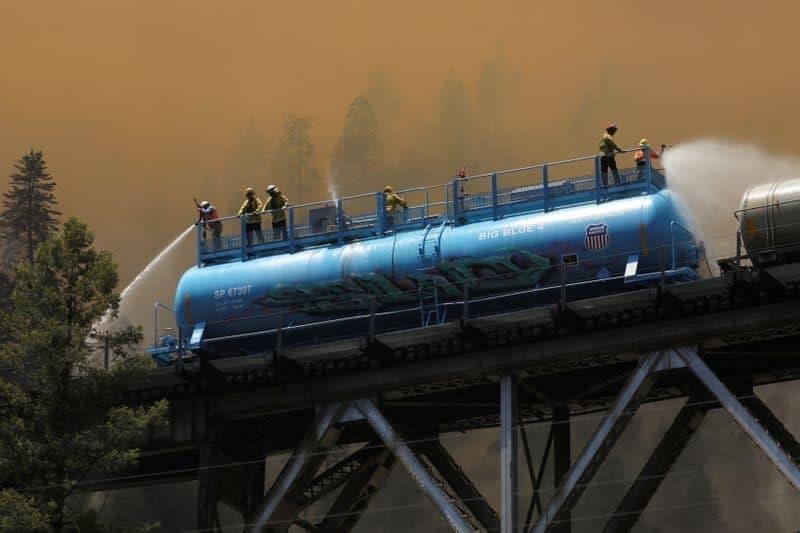CALIFORNIA, July 25 (Reuters) - Crews and officials battling a large fire that has incinerated more than 190,000 acres (77,000 hectares) in northern California braced for the possibility on Sunday that smoke columns could spawn lightning storms capable of igniting more blazes.
The swarming Dixie fire in Butte County, north of Sacramento, gained ground on Saturday and was only 21% contained as of Sunday, according to the California Department of Forestry and Fire Protection.
The Dixie fire joined with another one nearby on Saturday night, and firefighters have struggled to contain the blazes that have triggered evacuations in several communities.
"There is a high probability for the smoke columns to develop what we call a pyrophoric (cloud)," fire behavior analyst Dennis Burn said in a video message posted on the Facebook page of Lassen National Forest.
Large fires like the Dixie fire and Oregon's Bootleg fire, a massive blaze that has blackened more than 408,000 acres and was 46% contained as of Sunday, can at times generate their own weather, like lightning storms.
With the Dixie fire encroaching, the Plumas County Sheriff's Office issued mandatory evacuation orders for the eastern shore of Lake Almanor where "personnel are conducting door to door notifications."
An evacuation shelter was established in the city of Susanville, and five other areas were placed under evacuation warnings.
In Oregon, crews battling the Bootleg fire faced the "warmest and driest" day for the next several days, fire officials said in an update on Sunday.
More than 2,200 personnel were combating the Bootleg fire, officials from an interagency task force said.
"Evacuations are dynamic," the officials said, publishing an interactive map with warnings such as "Go (Leave immediately)" and "Be Set (Prepare to leave at a moment's notice)."
The Bootleg fire is one of more than 86 large active wildfires in 12 states that have charred more than 1.4 million acres in recent weeks, according to the National Interagency Fire Center (NIFC) in Boise, Idaho.
The conflagrations in the U.S. West, marking a heavier-than-normal start of the wildfire season, have coincided with record-shattering heat that has baked much of the region in recent weeks and caused hundreds of deaths.
